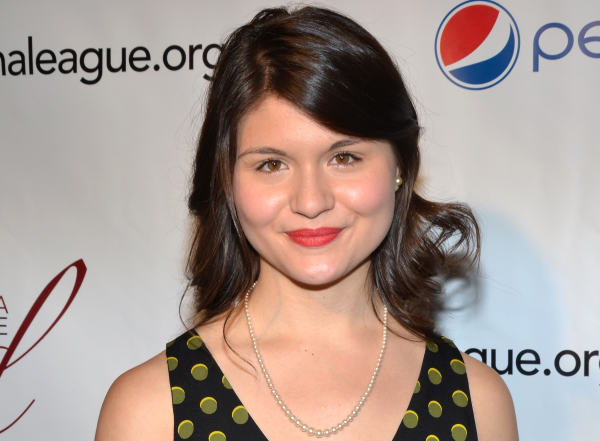Natasha, Pierre's Phillipa Soo Goes From 1812 Russia to 17th-Century France With Molière's The School for Wives at Two River Theater
Fresh from Juilliard's drama program, 23-year-old Phillipa Soo was scooped up by Ars Nova's electropop opera Natasha, Pierre & the Great Comet of 1812, which enjoyed an unexpectedly extended and celebrated life throughout New York City in the show's notorious pop-up venue, Kazino. Now that the tent has been packed away, Soo has continued on as a bona-fide theater actress, workshopping Tony winner Lin-Manuel Miranda's hotly anticipated musical Hamilton, starring in the Berkshire Theatre Group's recent summer production of A Little Night Music, and now venturing down to Red Bank, New Jersey to take on Molière in the 17th-century French author's The School for Wives. Soo took some time to speak with TheaterMania about the classic comedy, in which she will tackle the role of Agnes, the object of the much older Arnolphe's affections (played by Robert Stanton). While discussing this latest project, the actress also caught us up on life since Tolstoy, which, at least for now, includes a much needed storage unit.

(© David Gordon)
How are you enjoying your time so far at Two River Theater?
I'm having an amazing time. This is the first play that I've done for a couple of years because I've been doing a lot of musicals, so it's nice to crack down on those old tools and really go to work at a piece.
Having gone to Juilliard for drama, did you expect musical theater to be such a large part of your career?
I didn't really know what to expect. All I knew was what I felt really passionate about. There was a part of me that always knew that I wanted to be in this theater world. I actually grew up seeing a lot of classical theater — a lot of Shakespeare — but I have such a passion for music and find that way of telling a story to be really compelling as well. I don't know what I expected but I'm certainly happy with the way it's turned out. I just moved all of my stuff into storage because I'm hopping around for now, but it's really refreshing. I feel like if this is what the rest of my life is going to be, I'm totally okay with that.
It seems like you were shot out of a cannon with Natasha. Do you feel like you're settling into your career now?
Yeah, since we closed in March, I've had the opportunity to work with a lot of really amazing people on a lot of lab projects and some workshops. And then A Little Night Music came along and that was just a whole bunch of fun.
One of those workshop projects was Lin-Manuel Miranda's Hamilton, which is coming to the Public Theater this winter. How was your experience working on that?
I think that Lin is a fantastic writer and human being and I think he has such a hold on what he wants to say with this story. At that point when we were working on it there were still a lot of things that we were realizing. But he's probably been making some changes and tweaking.
Now that you've had experience both developing new works and reviving old classics, do you find you have a preference for one over the other?
Creating new work has been the majority of what I've been doing this year, at least and since Natasha. I love the collaborative process. Getting to meet new people and really building something with them is such a wonderful way to get to know someone. But I think there's something to be said for doing a classical play. You get to crack the code of the play. You get to really pick at it and see What is the story that we're telling? What are the clues in the text that I can find that will help inform what story we're telling? It's almost like a detective mystery. You're trying to figure out what's going on and doing that with a group of people is also a lot of fun so I get joy out of both.
As a 17th-century French play, do you think The School for Wives is still relevant for modern audiences?
I think it's definitely still relevant. You're dealing with issues of love, which is the universal story of our entire human race. Some of the scenes about the women being subservient to men and staying in so that they can say their prayers and sew them night shirts— I hope we're a little bit further than that [laughs], but ultimately, it's about this guy who wants to have this young girl's love. I think in general, people are baffled by love and what it does to them and how far they'll go to have love and be loved.











